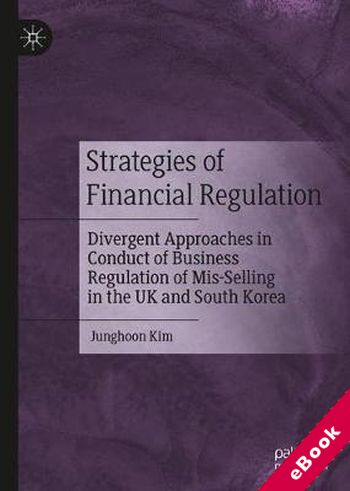
The device(s) you use to access the eBook content must be authorized with an Adobe ID before you download the product otherwise it will fail to register correctly.
For further information see https://www.wildy.com/ebook-formats
Once the order is confirmed an automated e-mail will be sent to you to allow you to download the eBook.
All eBooks are supplied firm sale and cannot be returned. If you believe there is a fault with your eBook then contact us on ebooks@wildy.com and we will help in resolving the issue. This does not affect your statutory rights.
This book analyses different strategies and their results in implementing financial regulation in terms of rule-making, public enforcement and private enforcement. The analysis is based on a comparative study of conduct of business regulation on mis-selling of financial instruments in the UK and South Korea. It extends into liquidity regulation in the banking sector and credit rating agency regulation. The book concludes that in rule-making, purposive rules are more effective for achieving regulatory goals with minimal undesirable results, but a rule-making system with purposive rules can only work on a foundation of trust among rule-makers, enforcers and the regulates, that with respect to public enforcement, the enforcement strategies should combine the compliance-oriented and deterrence-oriented approaches and be continuously adjusted based on close monitoring of the regulatory outcomes and that in private enforcement, regulation should be instituted as the minimum requirement in private law.